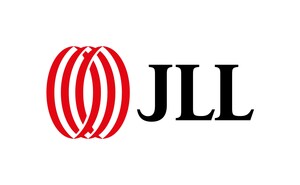CHICAGO, Nov. 16, 2017 /PRNewswire/ -- STEM graduates are creating new talent pools in unexpected U.S. markets, according to a new report by JLL. As it becomes more and more difficult to attract highly skilled talent, tech companies should consider looking outside of traditional tech hubs and exploring these new markets that also offer cost advantages compared to major urban metros.
San Jose still tops the U.S. metros with the highest rates of science and math, or STEM, degrees. But Columbus, Indiana, home of Purdue Polytechnic Institute and just 45 miles north of the burgeoning Indianapolis tech scene, comes in a close second. Rounding out the top three is Huntsville, Alabama. It is home to both NASA's Marshall Space Flight Center and Cummings Research Park, the second-largest research park in the country, as well as one of University of Alabama's three campuses.
"In an industry characterized by speed and scale, hiring for fast growth has been a challenge in recent years," said Julia Georgules, Senior Vice President and Director of Technology Research, JLL. "A concentrated focus on STEM in higher education has given tech companies new markets to target outside of traditional tech hubs. Choosing the right location is critical, and looking at nearby talent pipelines is key."
Over the course of its current seven-year economic growth cycle, there's been speculation about the tech industry's sustainability. This time around, however, it's not a bubble. As tech adoption steadily increases and technologies become more ingrained in our lives, the tech sector continues to be commercial real estate's biggest customer, driving 22 percent of overall U.S. office leasing year-to-date.
"Tech leasing is on track to surpass the already strong activity we've seen over the past two years, thanks to an overall economic shift toward innovation and technology," said Steffen Kammerer, Senior Vice President and leader of JLL's Technology group. "Leasing has permeated into markets across the country, leading to niche specializations in smaller markets, such as fintech in Atlanta and robotics in Pittsburgh, where we've recently seen companies such as Uber establish a satellite presence. The tech industry is becoming a more integrated part of local economies."
As tech leasing continues to grow, JLL's report highlights the key trends set to impact tech companies' real estate decisions.
The Future of Work is changing, and investing in the workplace is a must.
Gone are the days of simply paying for a prime location to win the war for tech talent. Now, attracting top talent also requires investing in an innovative workspace. But adding the amenities today's tech employees desire can be costly.
However, tech companies can breathe a sigh of relief. After build-out costs are considered, U.S. tech offices are actually 15 percent cheaper than traditional office spaces.
Forward-looking tech companies are adding more collaborative and creative work spaces to their offices, which JLL's Future of Work outlook found are among the most important workspace features. More open space means less physical materials, making hard costs for tech office fit-outs over $20 less expensive per square foot than traditional fit-outs.
These savings help account for the typically higher costs tech companies pay to equip their office with high-end technology and amenities that appeal to top talent.
Generations matter more than you might think.
Sure, Millennials will make up more than half of the workforce in just a few years, but Generation X and younger Boomers still provide invaluable experience and will remain a significant portion of the workforce. Designing spaces and strategies that cater to all generations' preferences and work styles will foster a sustainable and innovative workplace.
That said, just as Boomers caused fundamental changes to society, Millennials will follow suit. While Millennials have flocked to cities as they come of age, in time many will settle down, start families and adopt the suburban lifestyle. That's why tech companies must examine the long-term consequences of where they choose to locate.
"As tech companies expand, it's important that they don't count out the suburbs quite yet. Millennials will need housing within their budget and will want to ease their work-life balance," said Amber Schiada, Senior Vice President and Director of Technology Research, JLL. "Tech companies of all shapes and sizes can make the right real estate decisions by carefully considering emerging economic, educational and real estate trends."
To learn more about the trends impacting real estate decisions for U.S. tech companies, download JLL's Tech Office Trends 2017 report.
About JLL
JLL (NYSE: JLL) is a leading professional services firm that specializes in real estate and investment management. A Fortune 500 company, JLL helps real estate owners, occupiers and investors achieve their business ambitions. In 2016, JLL had revenue of $6.8 billion and fee revenue of $5.8 billion and, on behalf of clients, managed 4.4 billion square feet, or 409 million square meters, and completed sales acquisitions and finance transactions of approximately $145 billion. At the end of the third quarter of 2017, JLL had nearly 300 corporate offices, operations in over 80 countries and a global workforce of over 80,000. As of September 30, 2017, LaSalle Investment Management had $59.0 billion of real estate under asset management. JLL is the brand name, and a registered trademark, of Jones Lang LaSalle Incorporated. For further information, visit www.jll.com.
Connect with us
https://www.linkedin.com/company/jll
https://www.facebook.com/jll
https://twitter.com/jll
https://plus.google.com/+joneslanglasalle
Contact: Mike Romor
Phone: +1 312 228 3958
Email: [email protected]
SOURCE JLL
Related Links
WANT YOUR COMPANY'S NEWS FEATURED ON PRNEWSWIRE.COM?
Newsrooms &
Influencers
Digital Media
Outlets
Journalists
Opted In






Share this article